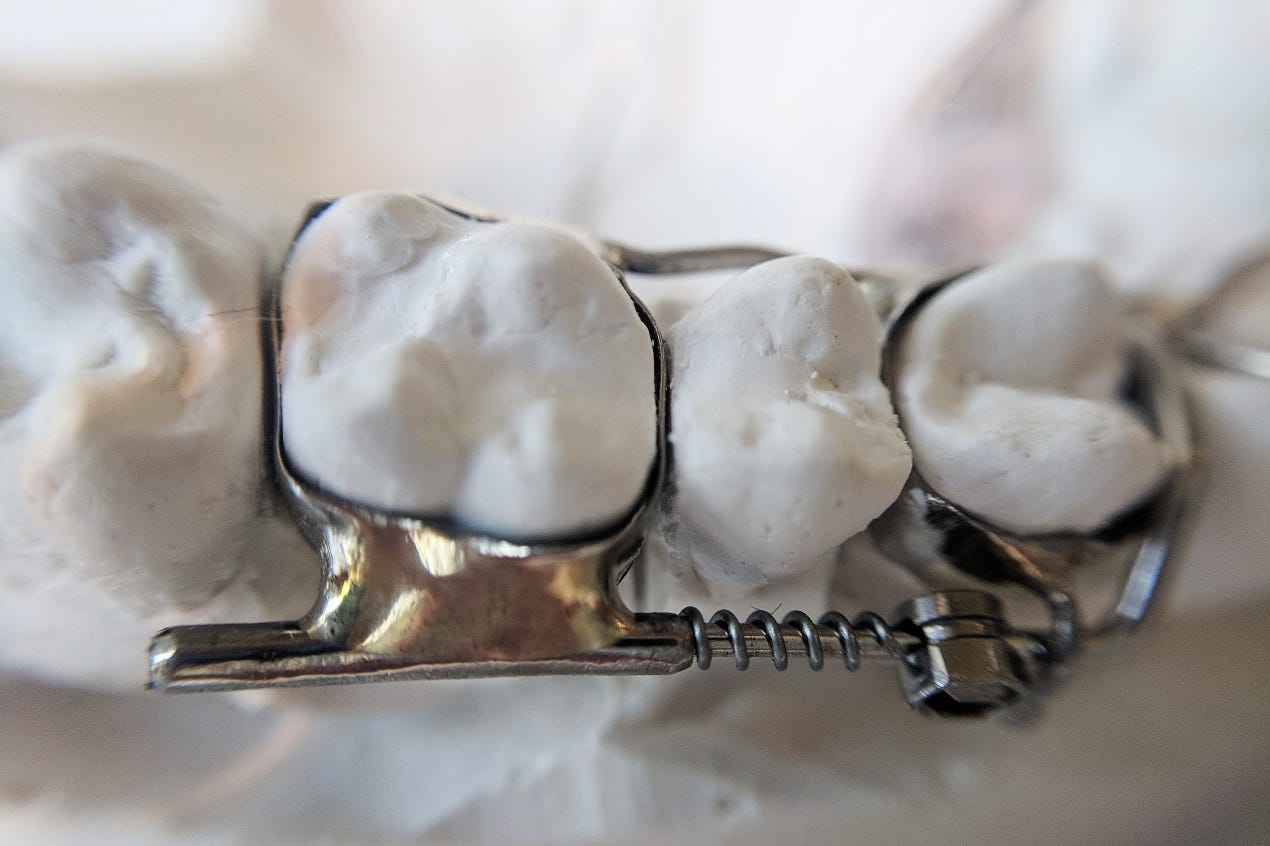March 19, 2023: Nurtec recall; nasal spray for migraine; news on leukemia, melanoma, prostate cancer; first-ever treatment for Rett's; cholesterol-lowering Nexletol research; drug curbs alcohol use
Nurtec ODT Recall and New Migraine Approval
The U.S. Consumer Product Safety Commission (CPSC) announced a recall of 4.2 million units of Pfizer's migraine drug Nurtec® ODT (rimegepant) orally disintegrating tablets (all are mint flavored) 8-Unit Dose blister pack because the packaging is not child-proof. Consumers are advised to secure the recalled product out of the sight and reach of children and contact Pfizer for a free child-resistant pouch to store it.
https://www.cpsc.gov/Recalls/2023/Pfizer-Recalls-Nurtec-ODT-Prescription-Drugs-Due-to-Failure-to-Meet-Child-Resistant-Packaging-Requirement-Risk-of-Poisoning
Fierce Pharma explains that Biohaven Pharmaceuticals had tweaked the Nurtec ODT packaging before its recent acquisition by Pfizer. Pfizer determined independently that the packaging did not meet childproofing standards, and reached out to CPSC with a temporary pharmacy packaging solution. The millions of products affected by the recall were set to expire as late as June of 2026 and are safe to use by patients.
https://www.fiercepharma.com/manufacturing/pfizer-and-biohavens-nurtec-recall-isnt-what-it-appears-surface
Pfizer's Zavzpret (zavegepant), a rapid acting nasal spray formulation for treating migraine, was approved by the U.S. Food & Drug Administration (FDA) and is expected to be available in July 2023. Pfizer reports that in its phase 3 study, two hours after using, 24% of participants were free of pain versus 15% in the placebo group. The primary side effect, experienced by 21% of those taking zavegepant, was an altered sensation of taste. The nasal spray may relieve migraine symptoms as soon as 15 minutes after use. It is only approved for migraine attacks, not for preventing migraine headaches.
https://www.fiercepharma.com/pharma/pfizer-hopes-nose-out-migraine-competition-approval-zavzpret
First-Ever Treatment for Rett's Syndrome
Acadia Pharmaceuticals' Daybue (trofinetide) oral solution was approved as the first treatment for Rett syndrome, a rare genetic neurological disorder that affects the way a child's brain develops, causing a progressive loss of motor skills and language. The hallmark of Rett syndrome is near constant repetitive hand movements, such as rubbing or clapping. The syndrome almost exclusively affects females, with 1 in 10,000 having the condition by age 12.
FDA approval was based on a 12-week clinical trial of 187 females ages 5 to 20, where treatment with Daybue demonstrated improvements in the signs and symptoms of Rett syndrome when compared to placebo. The most common side effect is diarrhea. Dosage is based on patient weight and is administered orally or through a gastrostomy (feeding) tube. Dabue is currently under review in Canada. Outside of the U.S. and Canada, Australian pharmaceutical developer Neuren will distribute the drug. Daybue received priority review, orphan drug and fast track drug designations.
https://www.spectrumnews.org/news/fda-approval-of-trofinetide-may-spur-further-drug-development-for-rett/
More on Daybue: https://daybue.com/daybue-faq.pdf
Update on AGGA Dental Device Investigation
In our last “Drugs & Treatments” newsletter, we reported on the joint Kaiser Health News (KHN) and CBS News investigation into injuries caused by the dental device known as the Anterior Growth Guidance Appliance (AGGA). Since then, KHN has learned from a former senior policy adviser in the agency’s device center that FDA officials have begun “looking into” the AGGA but have yet to determine how much legal authority the agency has to regulate it. Also, CBS reveals that the AGGA is still being sold but under a different name. Those who have experienced or witnessed complications from the AGGA are encouraged to assist the FDA by submitting a report through its MedWatch portal. View the 4 minute “CBS Mornings” update.
https://khn.org/news/article/agga-fda-investigation-dental-appliance-patient-harm/
Medwatch Portal: https://www.accessdata.fda.gov/scripts/medwatch/index.cfm?action=consumer.reporting1

The FDA maintains Manufacturer and User Facility Device Experience (MAUDE), a database of reports of injuries or problems linked to medical devices, which includes those reported through the MedWatch portal. Similarly, the FDA Adverse Event Reporting System (FAERS) database of adverse events for drugs includes drug safety issues reported through the MedWatch portal . A recent search of the MAUDE database reveals no reports for the AGGA device. Consumers may search MAUDE at the FDA website.
https://www.accessdata.fda.gov/scripts/cdrh/cfdocs/cfMAUDE/textSearch.cfm
Does Nexletol (non-statin cholesterol treatment) Reduce Risk of Heart Attacks?
Nexletol (bempedoic acid) was approved in 2020 as a treatment to help lower cholesterol (LDL levels) in conjunction with diet and maximally tolerated statin (such as atorvastatin or rosuvastatin) therapy. Many people can't or won't take statins because of side effects like muscle pain, and Nexletol is a new treatment option for those with high cholesterol.
Cleveland Clinic conducted a study on cardiovascular outcomes for Nexletol patients. Of 14,000 patients who were unable or unwilling to take statins due to unacceptable adverse effects (“statin-intolerant” patients), those taking 180 mg daily of oral bempedoic acid for three years had a 23% lower risk of having a heart attack and a 19% reduction in coronary revascularizations, which are procedures that restore blood flow to the heart, such as a bypass operation or stenting to open arteries, compared with those taking a placebo. The research was funded in part by Nexletol maker Esperion Therapeutics. The study was published in the New England Journal of Medicine.
https://knpr.org/npr/npr/2023-03-13/got-muscle-pain-from-statins-a-cholesterol-lowering-alternative-might-be-for-you
People's Pharmacy pharmacologist Joe Graedon provides additional context for the Nexletol Cleveland Clinic study. For example, he points out that the absolute risk for a heart attack was 3.7% in the bempedoic acid group compared to 4.8% in the placebo group. But when it comes to mortality, Nexletol did not save any lives over the three plus years of the study. "Some cardiologists will say that’s not enough time to see a clinical benefit. Others point to fewer heart attacks and say that is good enough for them." Potential side effects like gout or risk of tendon rupture are factors that patients need to consider before taking the drug. Some readers comment on their experience with Nexletol.
https://www.peoplespharmacy.com/articles/will-nexletol-bempedoic-acid-replace-statins
Patient Ratings for Nexletol:
https://www.askapatient.com/viewrating.asp?drug=211616&name=NEXLETOL
Potential of Psoriasis Drug to Treat Alcohol Use Disorder
A clinical trial carried out at Scripps Research suggests that psoriatic arthritis drug apremilast (also known as Otezla) may help people who want to reduce their alcohol consumption. In the study, alcohol consumption was reduced by more than half in people with severe alcohol use disorder (AUD). Collaborators at Oregon Health and Science University (OHSU) and other institutions also showed that, in mice, apremilast boosts activity in an area of the brain known to be involved in AUD. At the start of the Scripps study, participants consumed an average of five alcoholic drinks per day. At the end, people who received the placebo still drank nearly five drinks each day, while those who took apremilast reduced their alcohol intake to only about two drinks per day. The drug was well tolerated with no participants discontinuing treatment due to gastrointestinal side effects. The research was published online ahead of print in the Journal of Clinical Investigation .
https://www.scripps.edu/news-and-events/press-room/2023/20220227-mason-alcohol.html
Ask a Patient has one 2019 report of an unexpected (and dangerous) experience with Otezla and alcohol.
https://www.askapatient.com/viewrating.asp?drug=205437&name=OTEZLA&SideEffect=alcohol
The current drug label does not mention any interactions with alcohol.
Read all patient reviews on Otezla:
https://www.askapatient.com/viewrating.asp?drug=205437&name=OTEZLA
Cancer Treatments News & Research
Immunotherapy drugs like Keytruda (pembrolizumab) have become the "fourth pillar" of cancer treatment, alongside surgery, radiation, and chemotherapy. Immunotherapy drugs have been approved to treat a wide range of cancer types, and appear to be especially effective for treating advanced melanoma. According to Cary P. Gross, professor at Yale School of Medicine, the drugs have been "paradigm changing," because while it used to be that advanced melanoma patients typically survived only a matter of months, the five-year survival rate is now about 50 percent.
Former president Jimmy Carter took Keytruda in 2015 for metastatic melanoma and by the end of the year was cancer-free. Nevertheless, about half of all advanced-stage melanoma patients do not respond to the therapy. Check out health reporter Laurie McGinley's report on the "Jimmy Carter effect" on patient interest in immunotherapy.
https://www.washingtonpost.com/health/2023/03/06/jimmy-carter-melanoma-cancer-immune-therapy/?itid=ap_lauriemcginley
University of Bristol researchers found men with newly diagnosed prostate cancer may do just as well by delaying or even forgoing treatment. In the study, 1,600 men who were newly diagnosed with localized prostate cancer in the United Kingdom were followed for up to 21 years. The study found that patients' risk of dying from the disease was low regardless of whether they were actively monitored or treated with radiation or surgery. More aggressive treatment helped slow progression of the disease but did not lower the men's overall risk of dying of the disease. In a separate study, the same researchers revealed that men who undergo aggressive treatment sometimes report long-term side effects for up to twelve years. Both research studies were published in the New England Journal of Medicine.
https://www.bristol.ac.uk/news/2023/march/protect-study.html
Syndax's experimental drug revumenib shows promise as a treatment for acute leukemia. The Dana-Farber Cancer Institute trial enrolled 68 patients with relapsed or refractory acute leukemia that had failed to respond to previous treatments. Most of these patients had NPM1/KMT2A-related cancer. Nearly half of patients in the Phase I trial responded to the treatment, and some went into complete remission. The study was published in Nature. In a second study looking at the trial data, also published in Nature, the researchers found that some patients’ cancers adapted to the treatment and developed resistance to it. Revumenib works by inhibiting a protein called menin, which seems to play an important role in certain forms of leukemia.
https://gizmodo.com/revumenib-shows-promise-against-leukemia-in-early-trial-1850234770
Press release: https://www.dana-farber.org/newsroom/news-releases/2023/study-unravels-a-cause-of-resistance-to-novel-drug-in-patients-with-acute-leukemia/
Watch this 4-minute video by Syndax that explains how revumenib works:
In December 2022, Syndax's revumenib was granted Breakthrough Therapy Designation by the FDA, and is on track for a New Drug Application by the end of 2023 with the potential for an expedited approval. Two upcoming clinical trials (one monotherapy and the other revumenib-chemotherapy) are recruiting. Compassionate use requests may be submitted by treating physicians.
Clinical trials info: https://syndax.com/clinical-trials/revumenib/
Patient Case Study: “Ozempic not a Miracle Weight Loss Drug; it Takes Work”
Overweight since childhood and with diabetes running in his family, health writer Zee Krstic decided to give Ozempic (semaglutide) a try after unexpectedly being diagnosed with type 2 diabetes while he was recovering from Covid in 2022. His doctor told him that if he got his A1C (blood glucose levels) down, he wouldn’t have to take insulin.
Before COVID, Krstic says he wasn’t even prediabetic, the phase during which lifestyle changes can often prevent the disease itself. But it turns out, as recent research has confirmed, that Covid-19 may also increase the risk of type 2 diabetes.
After five months of taking Ozempic, Krstic had lost 64 pounds and reduced his A1C from 9.8% to 5.4%. In “I Lost 64 Pounds on Ozempic, But I'm Here to Tell You It's Not a Miracle Weight Loss Drug,” Krstic provides a detailed and engaging account of how he changed his entire life to help the drug work.
https://www.goodhousekeeping.com/health/diet-nutrition/a43065941/ozempic-weight-loss/
Patient reviews of Ozempic:
https://www.askapatient.com/viewrating.asp?drug=209637&name=OZEMPIC



